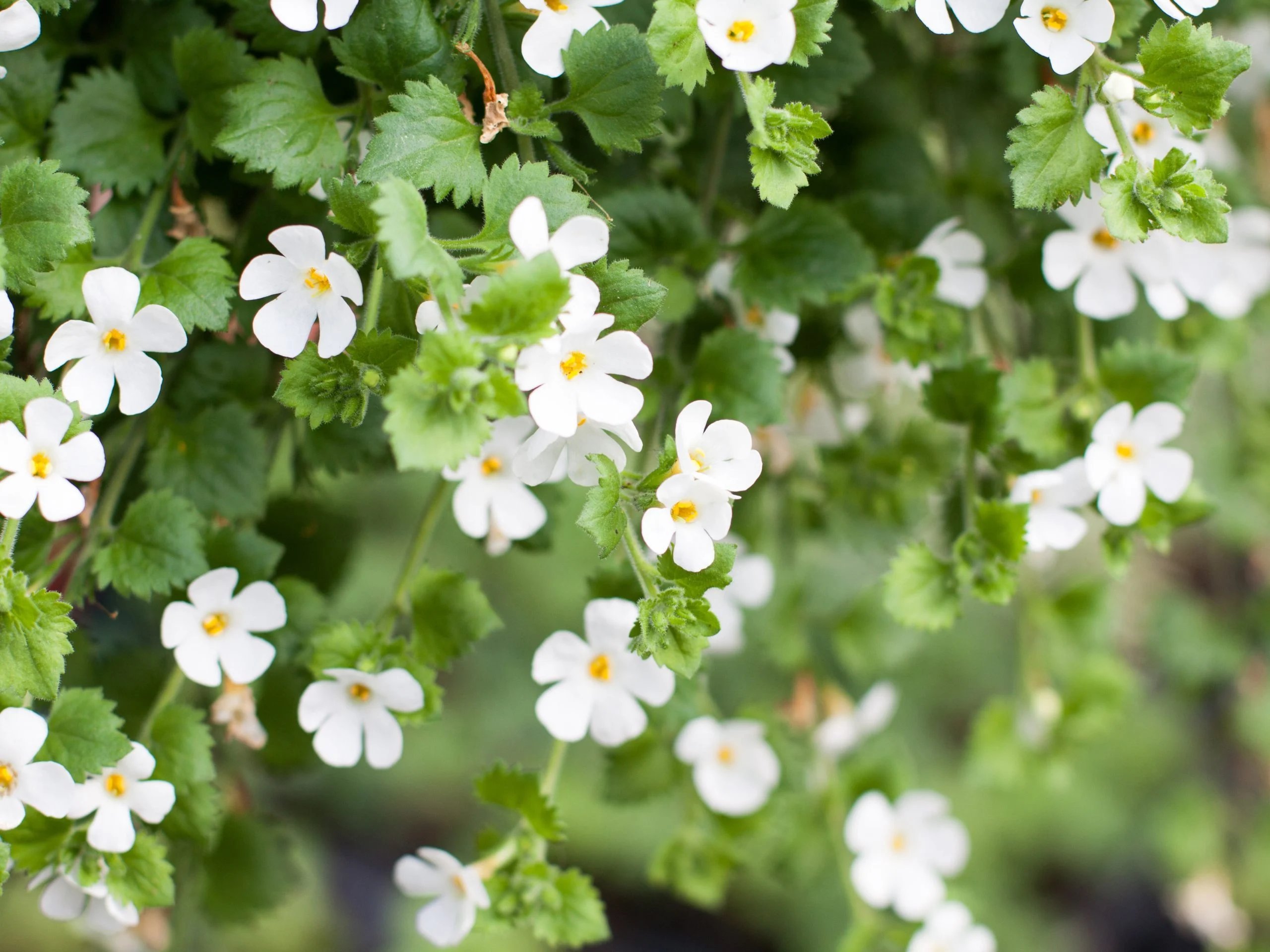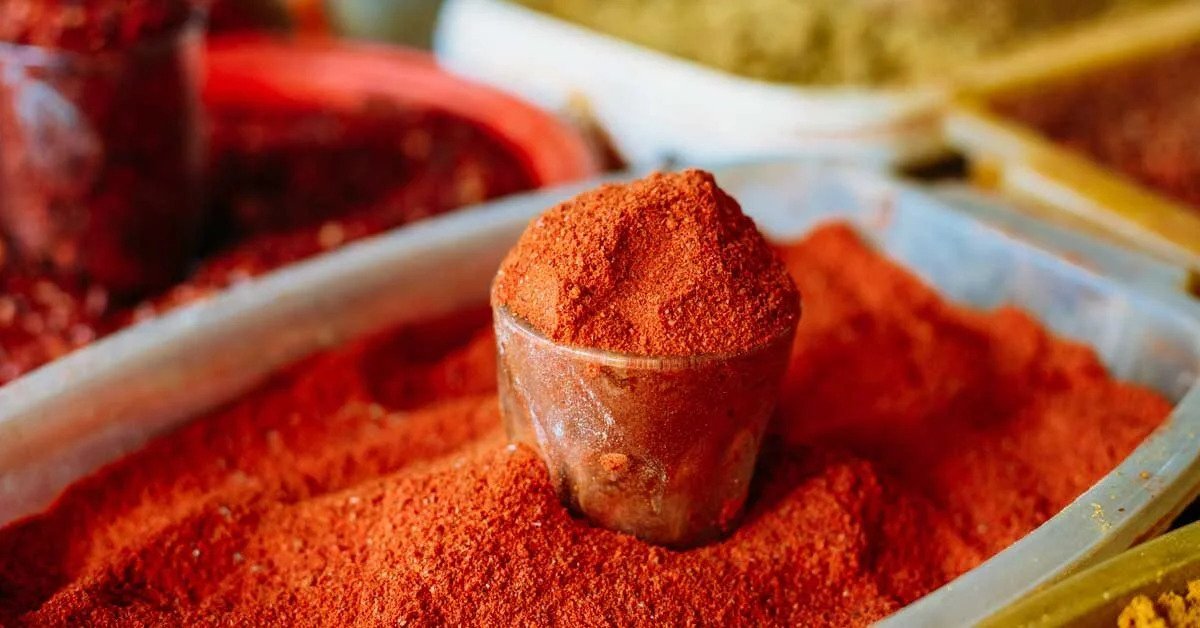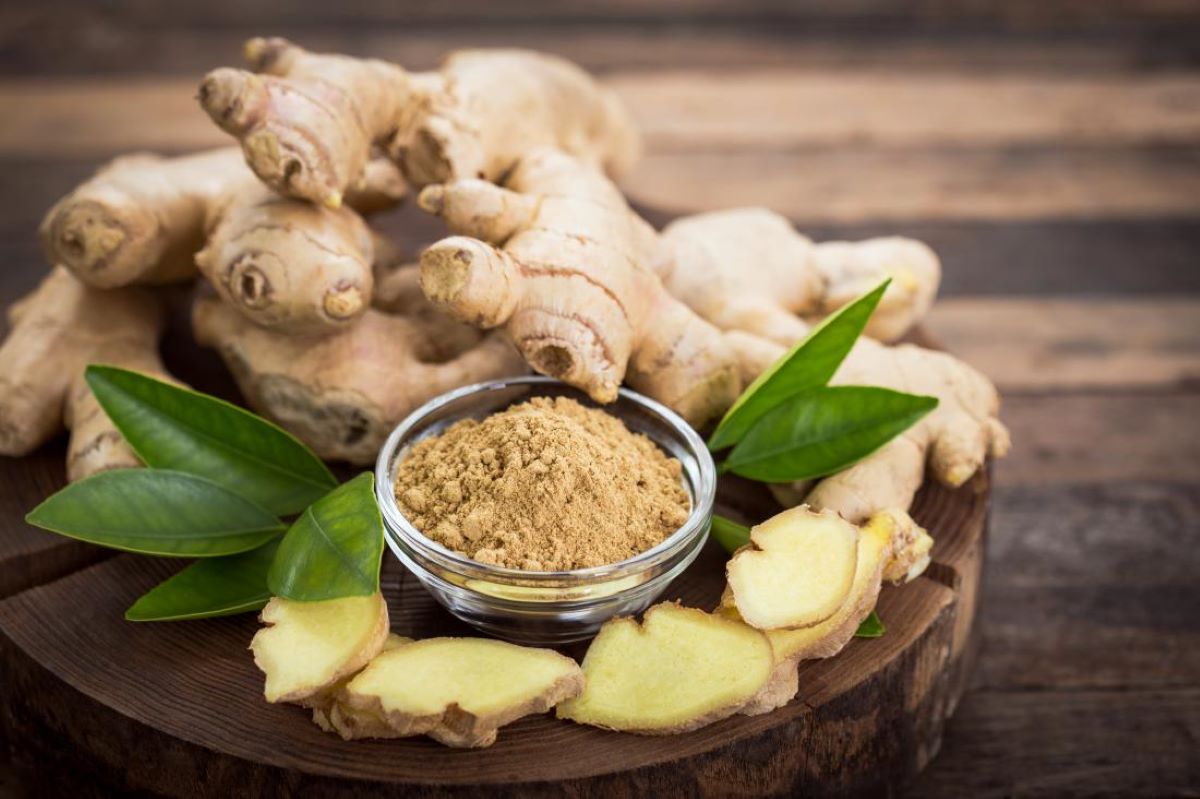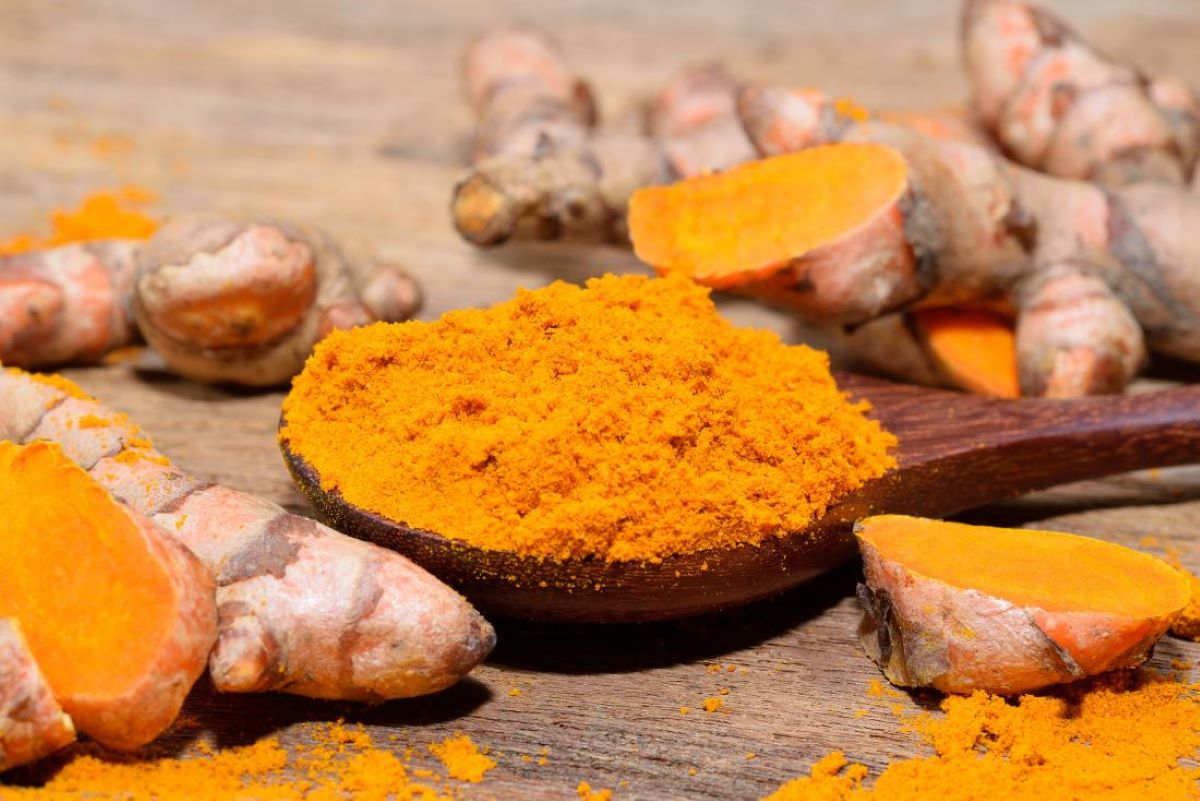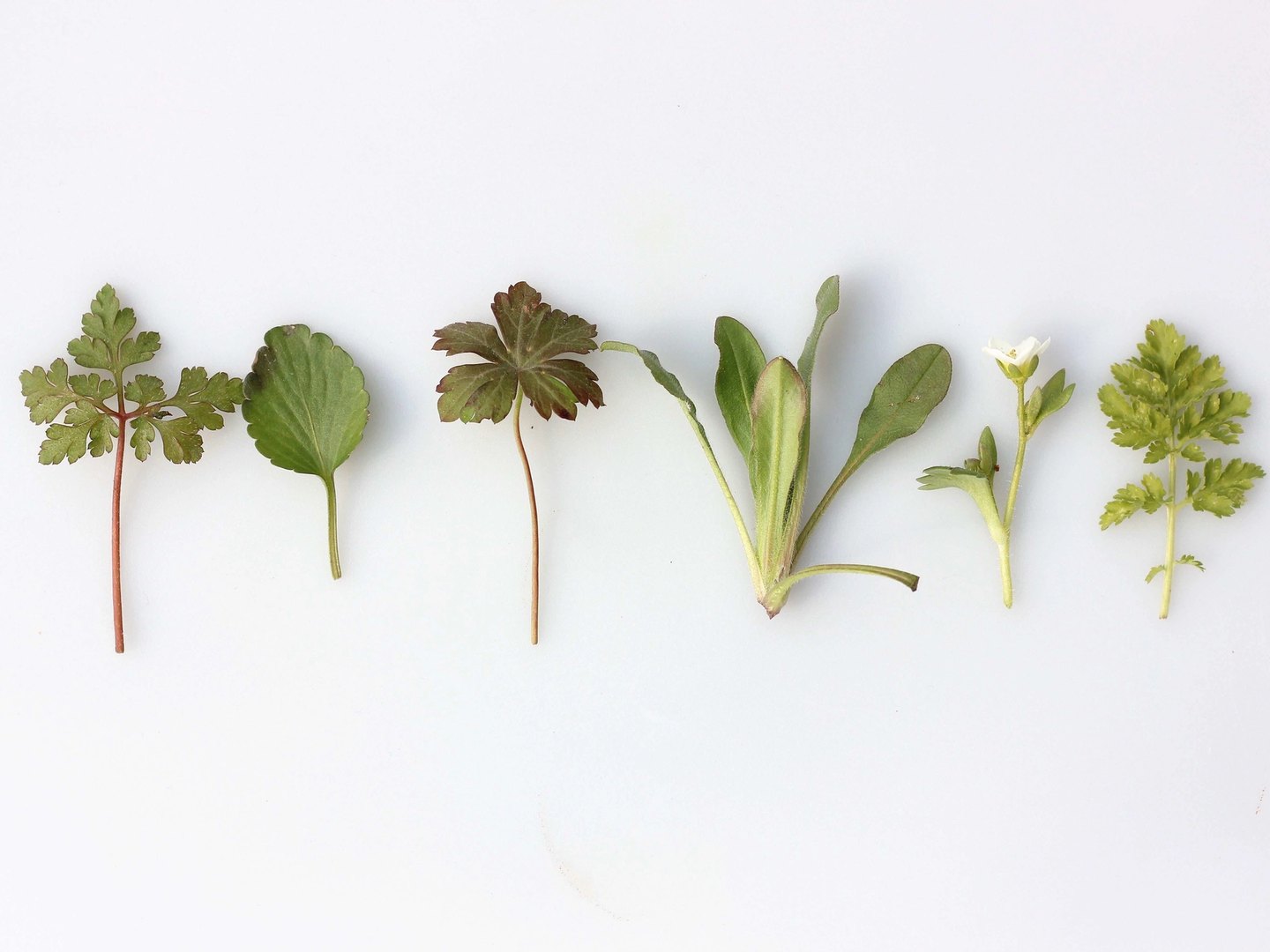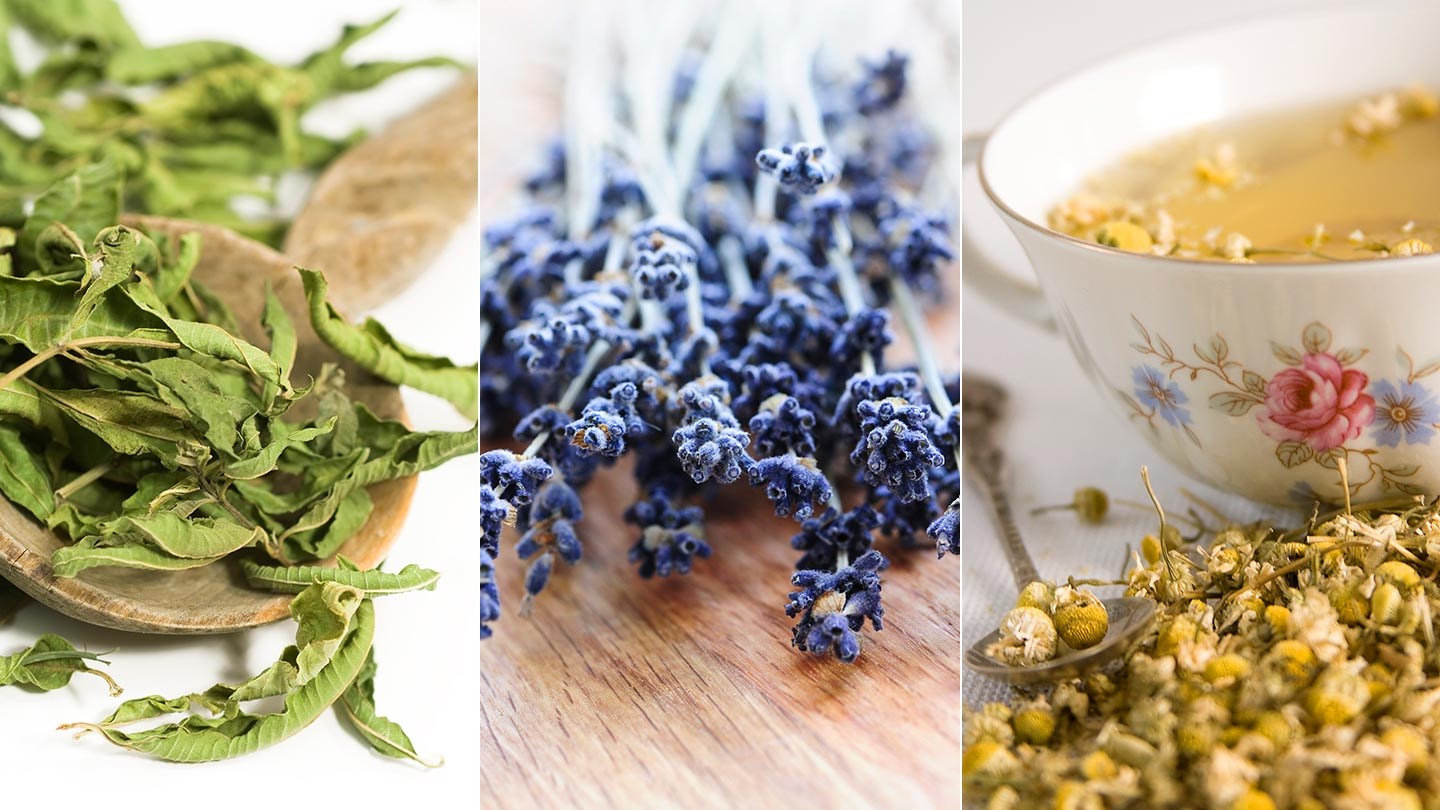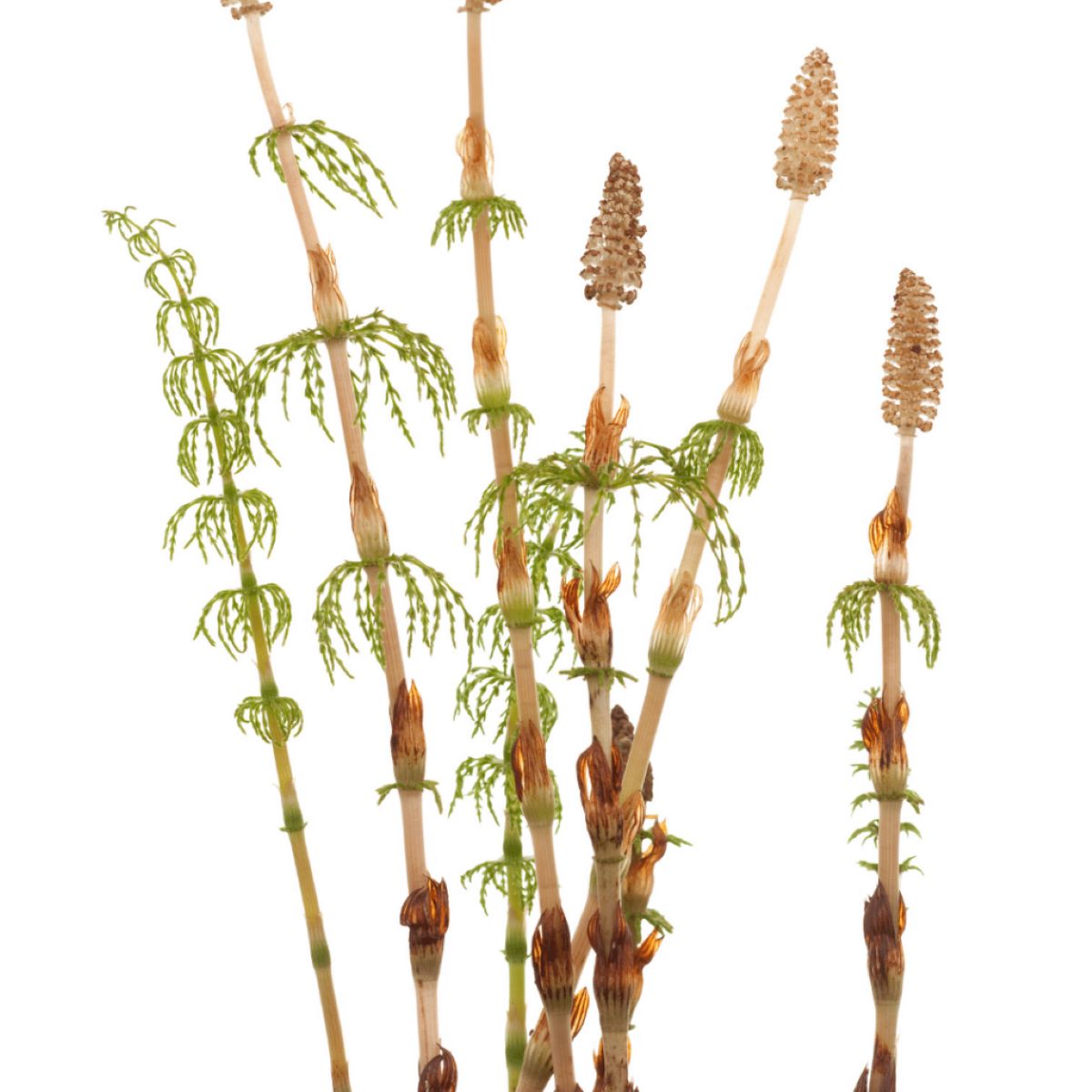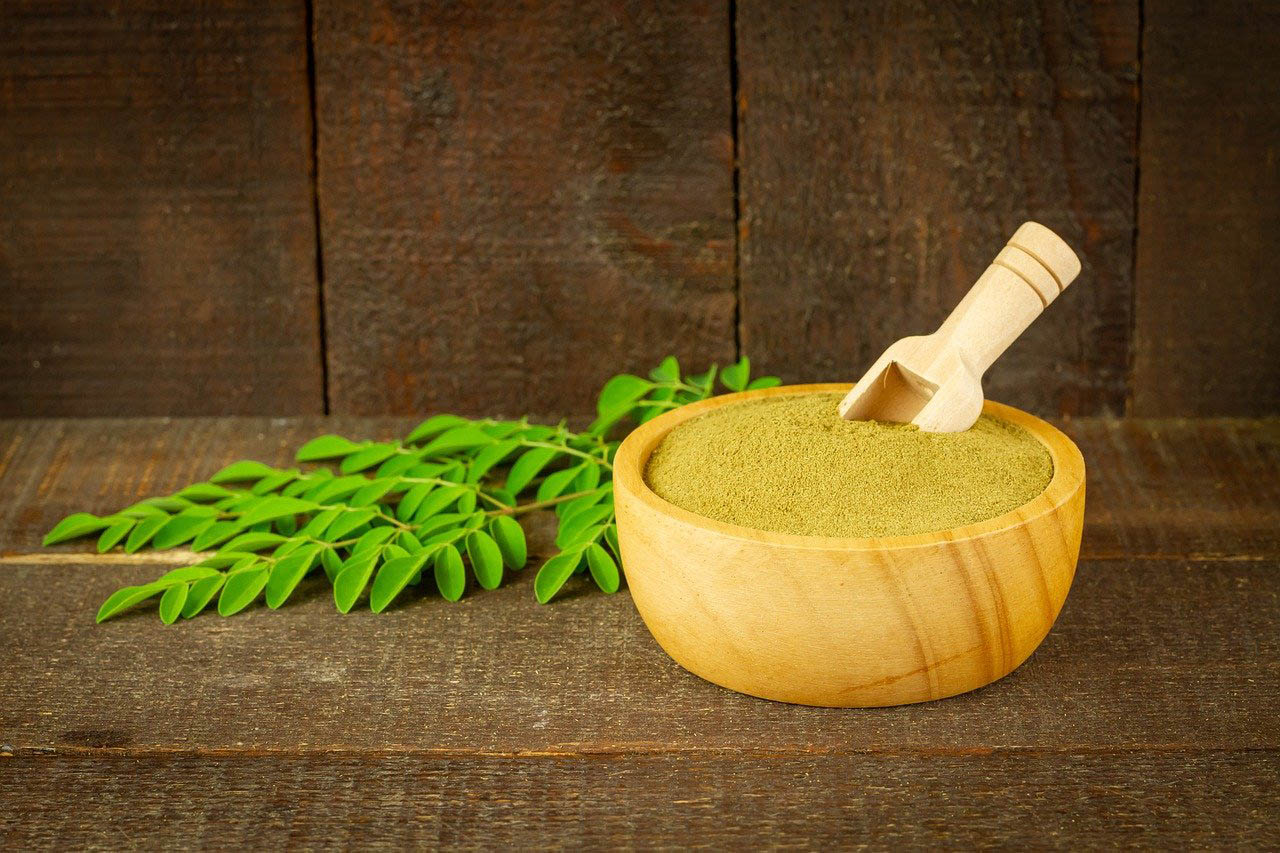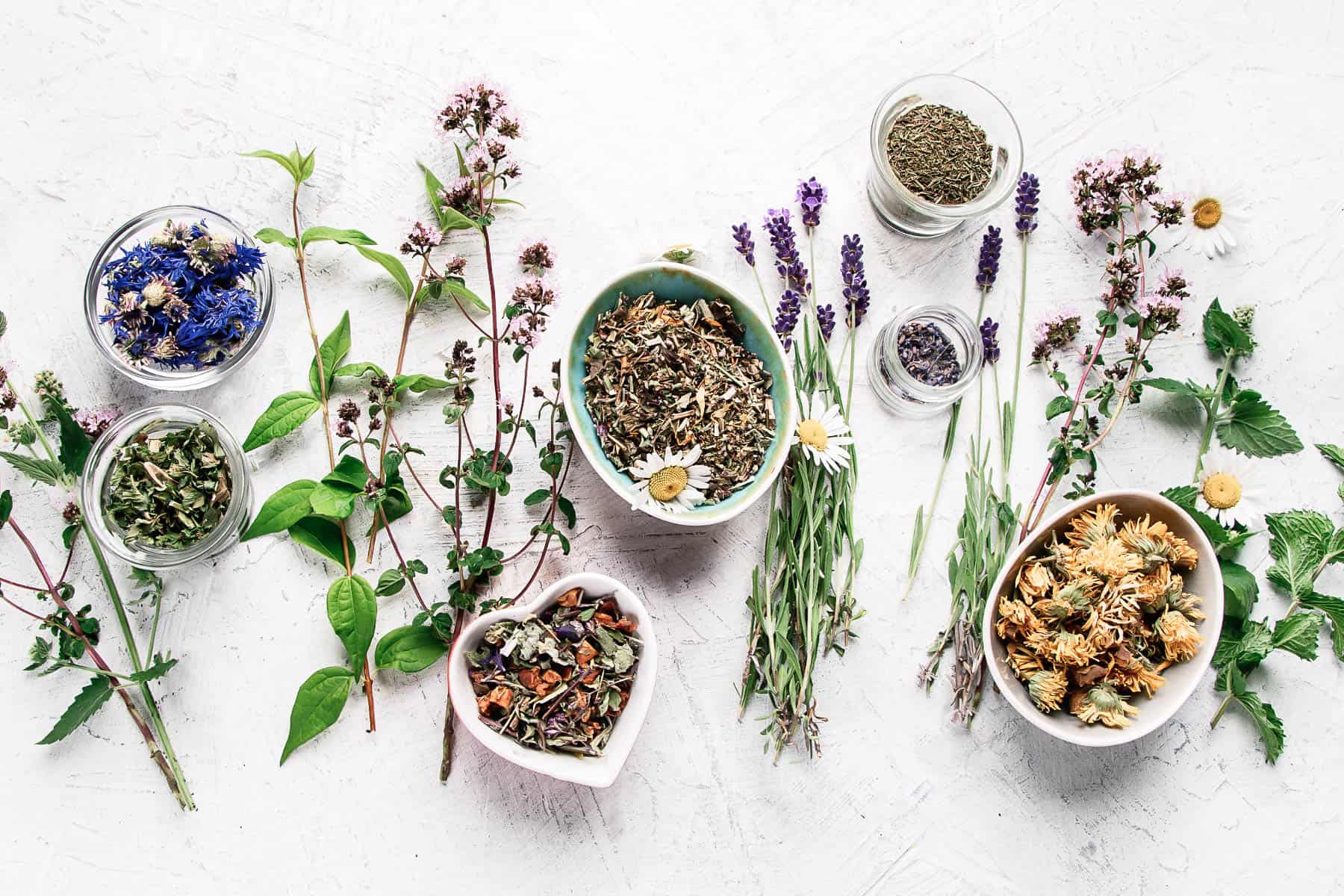Home>Gardening News and Trends>Latest News>Best Herbs That May Help Lower Blood Pressure
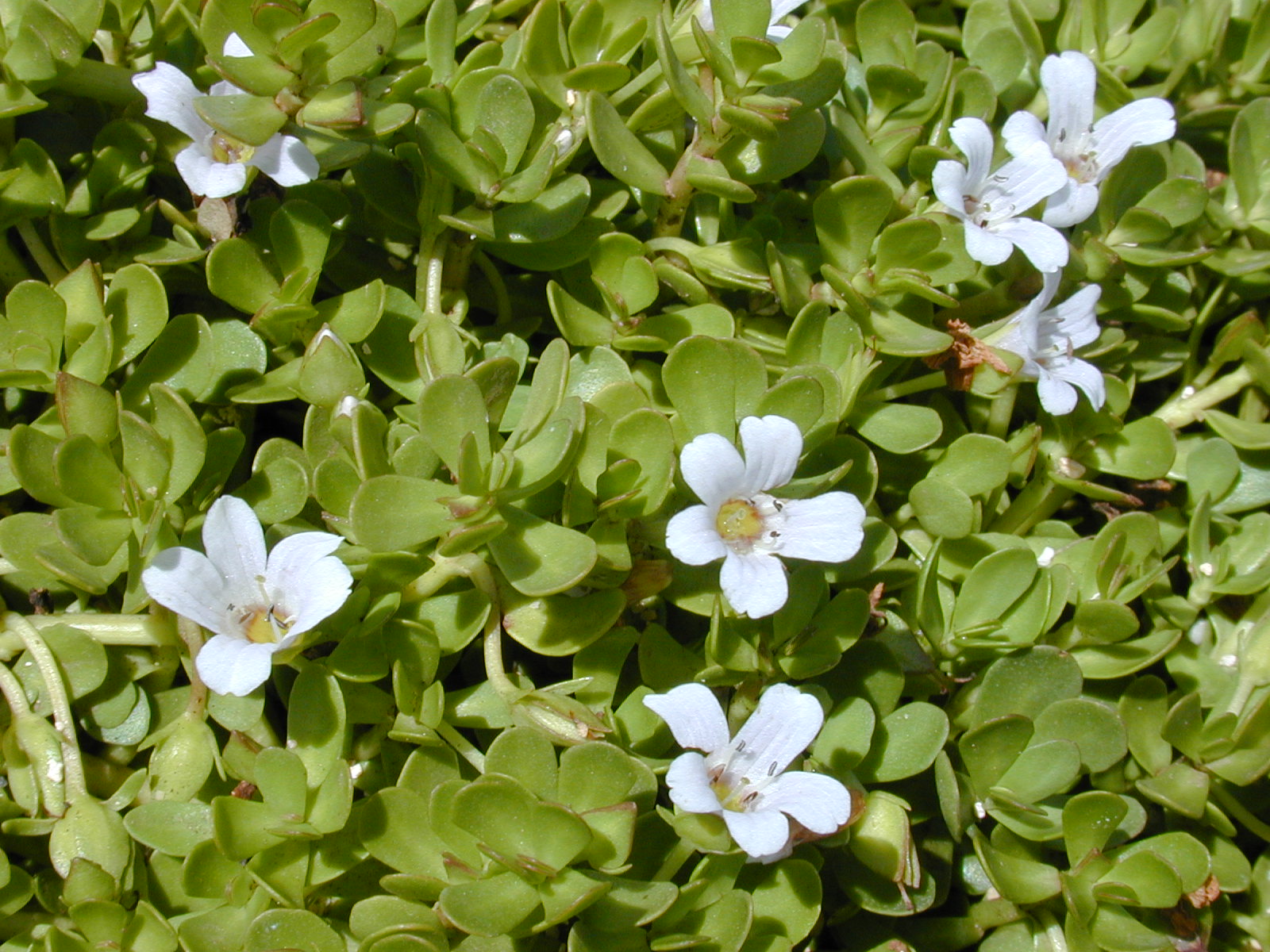

Latest News
Best Herbs That May Help Lower Blood Pressure
Modified: January 22, 2024
Discover the latest news on how to lower blood pressure using herbs. Explore natural remedies and effective techniques to promote optimal cardiovascular health.
(Many of the links in this article redirect to a specific reviewed product. Your purchase of these products through affiliate links helps to generate commission for Chicagolandgardening.com, at no extra cost. Learn more)
Table of Contents
Introduction
Welcome to our comprehensive guide on how to lower blood pressure using herbs. High blood pressure, also known as hypertension, affects millions of people worldwide and can increase the risk of serious health conditions such as heart disease and stroke. While there are medications available to manage blood pressure, many individuals are turning to natural remedies for a more holistic approach.
Herbs have been used for centuries in traditional medicine systems to promote overall health and well-being. They can also play a significant role in regulating blood pressure levels. The benefits of using herbs to lower blood pressure extend beyond just their medicinal properties. They are often more affordable, accessible, and have fewer side effects compared to prescription medications.
In this article, we will explore five powerful herbs that have been scientifically shown to help lower blood pressure. We’ll delve into the specific benefits of each herb, how they work, and how to incorporate them into your daily routine. But before we dive into the herbs themselves, let’s first understand the basics of high blood pressure and why it is important to manage it.
High blood pressure occurs when the force of blood against the walls of your blood vessels is consistently too high. This can put strain on the heart and other organs and increase the risk of heart attacks, strokes, and other complications. Several factors contribute to high blood pressure, including genetics, age, unhealthy lifestyle choices, and medical conditions such as obesity and diabetes.
Nowadays, people are becoming more conscious of their health and are seeking natural alternatives to manage their blood pressure. Herbs provide a promising solution, as they offer various mechanisms to help lower blood pressure. Whether it’s through vasodilation, diuresis, reduction of inflammation, or antioxidant properties, these herbs work in synergy with the body to promote a healthier cardiovascular system.
It’s important to note that while herbs can be beneficial in managing blood pressure, they should not replace prescribed medications without consulting with a healthcare professional. However, incorporating these herbs into your lifestyle can be a great complement to your current treatment plan and contribute to overall better health.
Now, let’s delve into the top herbs that can assist in naturally reducing blood pressure levels and how they can be integrated into your daily life.
Understanding High Blood Pressure
High blood pressure, or hypertension, is a common medical condition characterized by elevated levels of force exerted by blood against the walls of the arteries. It is often referred to as the “silent killer” because it can go unnoticed for years, gradually damaging the cardiovascular system and increasing the risk of serious health complications.
When blood pressure remains consistently high, it puts strain on the blood vessels and heart, leading to an increased risk of heart disease, stroke, kidney problems, and other cardiovascular issues. It’s crucial to understand the two components of blood pressure: systolic pressure and diastolic pressure.
Systolic pressure represents the force exerted when the heart contracts and pumps blood into the arteries. Diastolic pressure, on the other hand, reflects the force when the heart is at rest between beats. Blood pressure is measured as systolic pressure over diastolic pressure, and a reading above 120/80 mmHg is considered elevated.
The exact cause of high blood pressure is often unknown and can vary from person to person. However, several risk factors can contribute to its development, including genetics, age, poor diet, sedentary lifestyle, obesity, tobacco use, excessive alcohol consumption, stress, and certain underlying medical conditions such as diabetes or kidney disease.
It’s important to note that consistently high blood pressure can damage the walls of the arteries, making them more susceptible to build-up of plaque and narrowing of the blood vessels. This, in turn, reduces blood flow to vital organs, potentially leading to serious complications.
Regular monitoring of blood pressure is crucial for early detection and effective management. Normal blood pressure levels generally range between 90/60 mmHg and 120/80 mmHg. However, optimal blood pressure levels may vary depending on individual health factors.
If left uncontrolled, high blood pressure can silently damage the body over time. Common symptoms are often absent or mild, making it imperative to regularly check blood pressure and take appropriate measures to manage it. Lifestyle modifications, such as adopting a healthy diet, increasing physical activity, managing stress, and avoiding tobacco and excessive alcohol consumption, can make a significant impact on blood pressure levels.
While medication is often prescribed to manage hypertension, the use of herbs as a complementary approach has gained popularity. Many herbs possess properties that can help lower blood pressure naturally, making them a potential part of an integrative treatment plan. In the following sections, we will explore some of the top herbs known to assist in managing high blood pressure and their specific benefits.
The Benefits of Using Herbs to Lower Blood Pressure
Using herbs to lower blood pressure offers numerous benefits for individuals seeking a natural and holistic approach to managing hypertension. These benefits extend beyond just blood pressure regulation and contribute to overall cardiovascular health. Let’s explore some of the advantages of incorporating herbs into your daily routine.
1. Natural Approach: Herbs provide a natural alternative to manage high blood pressure without relying solely on medication. They are derived from plants and have been used for centuries in traditional medicine systems for their therapeutic properties. Many people prefer the idea of using natural remedies to support their overall well-being.
2. Fewer Side Effects: Compared to prescription medications, herbs often have fewer side effects. While medications can sometimes cause adverse reactions or interactions with other drugs, herbs are generally well-tolerated when used appropriately. However, it’s important to note that herbs can still have potential side effects or interactions, especially in larger doses or for individuals with certain medical conditions. It’s always recommended to consult with a healthcare professional before incorporating herbs into your regimen.
3. Supports Overall Cardiovascular Health: Herbs known to lower blood pressure often possess other cardiovascular benefits. They may help improve circulation, reduce inflammation, enhance heart health, and provide antioxidant protection. By promoting a healthy cardiovascular system, these herbs can reduce the risk of developing other related conditions such as heart disease and stroke.
4. Affordable and Accessible: Herbs are generally more affordable and accessible than prescription medications. They can be found in various forms such as dried herbs, teas, tinctures, or as dietary supplements. This makes it easier for individuals to incorporate them into their daily routine without breaking the bank.
5. Holistic Approach: Using herbs for blood pressure management is often part of a holistic approach to overall wellness. It encourages individuals to make lifestyle modifications, such as adopting a healthy diet, increasing physical activity, managing stress levels, and practicing self-care. These additional lifestyle factors can have a synergistic effect with the herbs, leading to improved overall health and well-being.
While herbs can provide several benefits in managing blood pressure, it’s important to note that they should not be used as a replacement for prescribed medications without consulting with a healthcare professional. Blood pressure management is a complex issue that requires comprehensive treatment tailored to individual needs. However, incorporating herbs into your lifestyle can complement your current treatment plan and contribute to overall better health.
Now that we understand the benefits of using herbs for blood pressure management, let’s explore some of the top herbs known for their ability to lower blood pressure naturally.
Top 5 Herbs for Lowering Blood Pressure
When it comes to using herbs to lower blood pressure, several natural remedies have been scientifically shown to have a significant impact. Incorporating these herbs into your lifestyle can help regulate blood pressure levels and support overall cardiovascular health. Let’s explore the top five herbs known for their ability to lower blood pressure:
1. Hawthorn: Hawthorn is a herb known for its cardiovascular benefits. It helps dilate blood vessels, improving blood flow and reducing the strain on the heart. Research suggests that hawthorn can effectively lower both systolic and diastolic blood pressure levels. It is commonly consumed as a tea or in supplement form.
2. Garlic: Garlic has been used for centuries for its medicinal properties, including its ability to lower blood pressure. It contains compounds that promote vasodilation and help relax the blood vessels, reducing blood pressure. Additionally, garlic has antioxidant properties that protect against cardiovascular damage. Consuming raw or cooked garlic regularly can have positive effects on blood pressure.
3. Hibiscus: Hibiscus tea is a popular herbal remedy for hypertension. Studies have shown that hibiscus can reduce both systolic and diastolic blood pressure levels. It works by inhibiting an enzyme that constricts blood vessels, allowing them to relax and improve blood flow. Enjoy hibiscus tea hot or cold to benefit from its blood pressure-lowering effects.
4. Olive leaf extract: Olive leaf extract has been used in traditional medicine for its various health benefits, including its potential to lower blood pressure. It contains compounds that promote vasodilation and reduce inflammation, contributing to improved cardiovascular health. Olive leaf extract is available in supplement form and can be a valuable addition to a hypertension management regimen.
5. Cinnamon: Cinnamon is a versatile spice with numerous health benefits, including its potential to lower blood pressure. Research suggests that cinnamon may help dilate blood vessels and improve blood flow, thereby reducing blood pressure levels. Sprinkle cinnamon on your food or incorporate it into your daily diet to reap its blood pressure-lowering benefits.
It’s important to note that the effectiveness of these herbs may vary from person to person. It’s advisable to consult with a healthcare professional before incorporating any new herbs or supplements into your routine, especially if you have underlying medical conditions or are taking prescribed medications.
Incorporating these herbs into your lifestyle can be done through various methods, including herbal teas, supplements, or adding them to your cooking. Experiment with different forms to find what works best for you.
Now that we’ve explored the top herbs for lowering blood pressure, let’s move on to the next section, where we will discuss how to incorporate these herbs into your daily routine for maximum benefit.
Hawthorn
Hawthorn is a powerful herb that has been traditionally used for its cardiovascular benefits. It is derived from the berries, leaves, and flowers of the hawthorn plant, which is native to Europe, North America, and Asia. Hawthorn has been extensively studied for its ability to lower blood pressure levels and support heart health.
The active compounds in hawthorn, including flavonoids and procyanidins, contribute to its medicinal properties. These compounds help dilate blood vessels, improving blood flow and reducing the strain on the heart. By promoting vasodilation, hawthorn can effectively lower both systolic and diastolic blood pressure levels.
Research has shown promising results regarding the blood pressure-lowering effects of hawthorn. A systematic review and meta-analysis of rigorous clinical trials found that hawthorn supplementation significantly reduced both systolic and diastolic blood pressure levels in individuals with hypertension. The study concluded that hawthorn could be used as a complementary approach in managing high blood pressure.
Hawthorn is commonly consumed as a tea or in supplement form. To prepare hawthorn tea, steep dried hawthorn berries or leaves in hot water for about 10 minutes, then strain and enjoy. Drinking hawthorn tea regularly may help regulate blood pressure levels over time.
Another convenient way to incorporate hawthorn into your routine is by taking hawthorn extract supplements. These supplements are available in various forms, such as capsules, tablets, or liquid extracts. It’s important to follow the recommended dosage instructions provided by the manufacturer or consult with a healthcare professional for personalized guidance.
While hawthorn is generally considered safe for most individuals, it’s important to note that it may interact with certain medications, including blood pressure medications, beta-blockers, and nitroglycerin. It’s crucial to consult with a healthcare professional before using hawthorn if you are taking any prescription medications.
It’s worth noting that hawthorn is not a quick fix for high blood pressure. Consistency is key, and it may take several weeks or months of regular use to experience the full benefits. Furthermore, hawthorn should be used as part of a holistic approach that includes a healthy diet, regular physical activity, stress management, and regular monitoring of blood pressure levels.
Incorporating hawthorn into your lifestyle can be a natural and effective way to support your cardiovascular health and manage high blood pressure. However, it’s always important to consult with a healthcare professional to discuss your specific situation and determine the best approach for managing your blood pressure.
Garlic
Garlic, a popular kitchen ingredient, has been used for centuries for its medicinal properties. It is not only a flavorful addition to dishes but also possesses impressive benefits for cardiovascular health, including its potential to lower blood pressure.
Garlic contains sulfur compounds, such as allicin, that give it its distinctive aroma and numerous health-promoting properties. These compounds have been found to help regulate blood pressure by promoting vasodilation and reducing the constriction of blood vessels. By relaxing blood vessels, garlic can effectively lower both systolic and diastolic blood pressure levels.
Research has shown promising results regarding the ability of garlic to lower blood pressure. A meta-analysis of randomized controlled trials found that garlic supplementation was associated with a modest reduction in both systolic and diastolic blood pressure levels. The study concluded that garlic could be an effective adjunct to lifestyle modifications for managing hypertension.
Consuming garlic regularly may provide blood pressure-lowering benefits. Raw garlic is believed to have the highest concentration of active compounds, but it can be quite pungent. If raw garlic is too strong for your taste, you can try incorporating it into your cooking by adding it to dishes like stir-fries, sauces, soups, or roasted vegetables. Crushing or chopping garlic cloves before cooking can enhance the release of its beneficial compounds.
If the taste or odor of raw garlic is a concern, you can opt for aged garlic extract or odorless garlic supplements. These products undergo a process that reduces the pungency while retaining the beneficial compounds. It’s important to follow the recommended dosage instructions provided by the manufacturer or consult with a healthcare professional for personalized guidance.
It’s worth noting that garlic may have blood-thinning properties, so individuals taking anticoagulant medications should exercise caution and consult with a healthcare professional before incorporating garlic supplements into their regimen.
While garlic can contribute to blood pressure management, it’s important to remember that it is not a standalone solution. A holistic approach that includes a balanced diet, regular physical activity, stress reduction, and regular monitoring of blood pressure levels is crucial for managing hypertension effectively.
Incorporating garlic into your daily routine can be a delicious and natural way to support your cardiovascular health and manage high blood pressure. However, it’s always wise to consult with a healthcare professional to discuss your specific situation and ensure that garlic supplementation is safe and appropriate for you.
Hibiscus
Hibiscus, a vibrant and beautiful flower, is not only visually appealing but also possesses impressive health benefits, including its potential to lower blood pressure. Hibiscus tea, made from the dried petals of the hibiscus flower, has long been used as a natural remedy for hypertension.
The active compounds in hibiscus, including anthocyanins and flavonoids, contribute to its blood pressure-lowering effects. These compounds have been found to inhibit an enzyme that constricts blood vessels, leading to relaxation and improved blood flow. As a result, hibiscus tea has been shown to effectively lower both systolic and diastolic blood pressure levels.
Research supports the blood pressure-lowering benefits of hibiscus. A review of randomized controlled trials found that hibiscus tea consumption significantly reduced blood pressure levels in individuals with hypertension. The study suggested that incorporating hibiscus tea into the diet could be an effective lifestyle modification for blood pressure management.
Preparing hibiscus tea is simple. Steep dried hibiscus petals in hot water for about 5-10 minutes, then strain and enjoy. The tea can be consumed hot or cold, depending on personal preference. For added flavor and sweetness, you can also add a touch of honey or a slice of lemon.
While hibiscus tea is generally safe for most individuals, it may interact with certain medications, including diuretics and antihypertensive drugs. If you are taking prescription medications, consult with a healthcare professional before incorporating hibiscus tea into your routine.
One of the advantages of hibiscus tea is its delicious and refreshing taste. It can be enjoyed as a daily beverage, replacing sugary or caffeinated drinks. Regular consumption can help regulate blood pressure levels over time, but consistency is key.
In addition to its blood pressure-lowering properties, hibiscus tea is rich in antioxidants, which help protect the body against damage from harmful free radicals. It also has potential anti-inflammatory effects, further benefiting overall cardiovascular health.
Incorporating hibiscus tea into your daily routine can be a delightful and natural way to support your cardiovascular health and manage high blood pressure. However, it’s essential to maintain a balanced lifestyle, including a healthy diet, regular physical activity, and stress management, for optimal blood pressure management.
As always, it’s recommended to consult with a healthcare professional, especially if you have any underlying medical conditions or are taking medications, to ensure that hibiscus tea is safe and appropriate for you.
Olive Leaf Extract
Olive leaf extract, derived from the leaves of the olive tree, is gaining recognition for its numerous health benefits, including its potential to lower blood pressure. This extract has been used for centuries in traditional medicine for its medicinal properties and is now becoming popular as a natural remedy for hypertension.
The active compounds in olive leaf extract, such as oleuropein and hydroxytyrosol, contribute to its blood pressure-lowering effects. These compounds have been found to promote vasodilation, reducing the constriction of blood vessels and improving blood flow. By enhancing blood circulation, olive leaf extract can effectively lower both systolic and diastolic blood pressure levels.
Several studies have indicated the potential of olive leaf extract in managing hypertension. A review of clinical trials found that olive leaf extract supplementation resulted in a significant reduction in both systolic and diastolic blood pressure levels. The study suggested that the beneficial effects of olive leaf extract on blood pressure may be attributed to its antioxidant and anti-inflammatory properties.
Olive leaf extract is available in various forms, such as capsules, liquid extracts, or as a dried herbal supplement. It’s important to follow the recommended dosage instructions provided by the manufacturer or consult with a healthcare professional for personalized guidance.
While olive leaf extract is generally safe for most individuals, it may interact with certain medications, including antihypertensive drugs and blood thinners. If you are taking prescription medications, it’s essential to consult with a healthcare professional before incorporating olive leaf extract into your routine.
In addition to its blood pressure-lowering effects, olive leaf extract also offers other health benefits. It has antioxidant properties that help protect against oxidative stress and improve overall cardiovascular health. Olive leaf extract may also have anti-inflammatory effects, contributing to a healthier cardiovascular system.
Incorporating olive leaf extract into your daily supplement routine can be a natural and effective way to support your cardiovascular health and manage high blood pressure. However, it’s crucial to remember that it is not a substitute for a healthy lifestyle. A balanced diet, regular exercise, stress management, and regular blood pressure monitoring are still essential for optimal blood pressure management.
As always, consult with a healthcare professional before starting any new supplements, especially if you have underlying medical conditions or are taking medications. They can provide personalized advice based on your specific situation and ensure that olive leaf extract is safe and appropriate for you.
Cinnamon
Cinnamon, a fragrant spice commonly used in cooking and baking, offers more than just a delightful flavor. It has also been found to have potential health benefits, including its ability to lower blood pressure.
The active compounds in cinnamon, particularly cinnamaldehyde, contribute to its blood pressure-lowering effects. Cinnamon has been shown to have vasodilatory properties, helping to relax the blood vessels and improve blood flow. This can lead to a reduction in both systolic and diastolic blood pressure levels.
Research suggests that cinnamon can have a positive impact on blood pressure regulation. A systematic review and meta-analysis of controlled trials found that cinnamon consumption was associated with a modest reduction in both systolic and diastolic blood pressure levels in individuals with hypertension. The study suggested that incorporating cinnamon into the diet could be a suitable adjunct to lifestyle modifications for blood pressure management.
Adding cinnamon to your daily routine is simple and enjoyable. You can sprinkle cinnamon powder on your morning oatmeal, yogurt, or smoothie, or incorporate it into baking recipes. Cinnamon is a versatile spice that pairs well with various dishes, making it easy to integrate into your diet.
It’s essential to note that while cinnamon can contribute to blood pressure management, it is not a standalone solution. A holistic approach that includes a balanced diet, regular exercise, stress reduction, and regular monitoring of blood pressure levels is crucial for managing hypertension effectively.
Cinnamon not only offers blood pressure-lowering effects but also provides other potential health benefits. It is rich in antioxidants that help protect against oxidative stress and inflammation. Some studies even suggest that cinnamon may improve insulin sensitivity and help regulate blood sugar levels in individuals with diabetes.
Cinnamon is generally safe for most individuals when consumed in moderation as a spice. However, if you are considering cinnamon supplements or higher doses for therapeutic purposes, it’s advisable to consult with a healthcare professional to ensure it is suitable for you, especially if you have underlying medical conditions or are taking medications.
By incorporating cinnamon into your daily routine, you can enjoy its delicious flavor while also supporting your cardiovascular health and managing high blood pressure. Remember to prioritize a balanced lifestyle, including a healthy diet, regular physical activity, and stress management, for optimal blood pressure management.
As always, it’s recommended to consult with a healthcare professional to discuss your specific situation and ensure that cinnamon supplementation or consumption is safe and appropriate for you.
Incorporating Herbs Into Your Lifestyle
Now that we have explored the top herbs for lowering blood pressure, it’s important to understand how to incorporate these herbs into your daily lifestyle for maximum benefit. Here are some practical tips:
1. Herbal Teas: One of the easiest and most enjoyable ways to incorporate herbs into your routine is by brewing herbal teas. Choose dried herbs such as hawthorn, hibiscus, or cinnamon, and steep them in hot water for a few minutes. Customize your tea by adding honey or lemon for extra flavor. Aim to drink herbal tea 1-2 times a day to reap the blood pressure-lowering benefits.
2. Culinary Delights: Many herbs can be added to your meals and snacks to enhance their flavor while providing health benefits. Garlic and cinnamon can be sprinkled on various dishes, while hawthorn berries can be used in jams or desserts. Experiment with different recipes and enjoy the natural goodness of these herbs in your favorite culinary creations.
3. Herbal Supplements: For a more concentrated dose, herbal supplements can be a convenient option. Look for standardized extracts or supplements that contain the specific herb and dosage recommended for blood pressure management. However, it’s essential to consult with a healthcare professional before starting any new supplements to ensure they are safe and suitable for you.
4. Herbs in Oil or Tincture Form: Some herbs, like olive leaf extract, can be found in oil or tincture forms. These concentrated extracts can be added to your daily routine by mixing a few drops with water or your favorite beverage. Follow the specific instructions provided by the manufacturer or consult with a healthcare professional for personalized guidance.
5. Fresh Herbs and Spices: Incorporating fresh herbs and spices into your meals not only adds flavor but also provides health benefits. Grow your own herbs like hawthorn, garlic, or cinnamon, and harvest them when needed. Fresh herbs can be used in salads, dressings, or as a garnish, while spices can be used in marinades, sauces, or roasted dishes.
Remember, consistency is key when incorporating herbs into your lifestyle. It may take time to notice significant changes in blood pressure levels, so be patient and make these changes a long-term commitment. It’s important to continue monitoring your blood pressure and working in collaboration with your healthcare team for comprehensive management.
While herbs can contribute to blood pressure management, they should not replace prescribed medications without consulting with a healthcare professional. Herbs are meant to be used as a complementary approach, supporting a healthy lifestyle and existing treatment plan.
The use of herbs for blood pressure management is a personal choice, and it’s important to consider individual preferences and potential interactions with medications or medical conditions. When in doubt, consult with a healthcare professional who can provide personalized advice and guidance to ensure the safe and effective use of herbs in managing your blood pressure.
Precautions and Potential Interactions
While herbs can be beneficial in managing blood pressure, it’s important to exercise caution and be aware of potential interactions and precautions. Here are some key considerations to keep in mind:
1. Consult with a Healthcare Professional: Before incorporating any new herbs or supplements into your routine, it’s important to consult with a healthcare professional, especially if you have underlying medical conditions or are taking prescribed medications. They can provide personalized advice based on your specific situation and help ensure that the herbs are safe and appropriate for you.
2. Individual Sensitivities: Individuals may have different sensitivities or allergies to certain herbs. It’s important to monitor your body’s response and discontinue use if you experience any adverse reactions such as allergic reactions, digestive issues, or skin problems. If you are unsure about potential allergies, it may be helpful to conduct an allergy test before introducing new herbs into your lifestyle.
3. Interactions with Medications: Some herbs can interact with medications, either by reducing their effectiveness or enhancing their effects. For example, herbs such as hawthorn, garlic, or olive leaf extract may have interactions with blood pressure medications or anticoagulants. It’s crucial to inform your healthcare professional about any herbs or supplements you are taking to avoid potential interactions.
4. Pregnancy and Breastfeeding: Pregnant or breastfeeding individuals should exercise caution when using herbs for blood pressure management. Some herbs may not be safe during pregnancy or lactation, as they can affect hormone levels or have other side effects. It’s essential to consult with a healthcare professional before using any herbs during this time.
5. Quality and Dosage: It’s important to choose high-quality herbs and supplements from reputable sources to ensure their purity and potency. Follow the recommended dosage instructions provided by the manufacturer or consult with a healthcare professional for personalized guidance. Avoid exceeding the recommended dosage, as it may lead to adverse effects.
6. Monitoring Blood Pressure: Even when incorporating herbs into your lifestyle, it’s crucial to continue monitoring your blood pressure regularly. Herbs can be a valuable addition to a comprehensive treatment plan, but they should not replace regular check-ups and monitoring by a healthcare professional.
By being mindful of these precautions and potential interactions, you can safely and effectively incorporate herbs into your blood pressure management routine. Remember, everyone’s body is different, so it’s important to find the right combination and dosage of herbs that works best for you, with the guidance of a healthcare professional.
Lastly, it’s worth noting that while herbs can support blood pressure management, they are not a standalone solution. Adopting a healthy lifestyle that includes a balanced diet, regular exercise, stress management, and other necessary lifestyle modifications is crucial for optimal blood pressure management.
Always prioritize your safety and well-being by seeking professional advice and staying informed about potential interactions and precautions associated with herbs and supplements. With the right guidance and a holistic approach, you can effectively manage your blood pressure and support your overall cardiovascular health.
Conclusion
Incorporating herbs into your lifestyle can be a natural and effective way to support your cardiovascular health and manage high blood pressure. Herbs such as hawthorn, garlic, hibiscus, olive leaf extract, and cinnamon have shown promise in lowering blood pressure levels. They offer numerous benefits, including being a natural approach, having fewer side effects compared to medications, supporting overall cardiovascular health, and being more affordable and accessible.
When incorporating herbs into your routine, it’s important to choose high-quality herbs and supplements, follow recommended dosages, and be aware of potential interactions and precautions, especially if you have underlying medical conditions or are taking medications. It’s always wise to consult with a healthcare professional for personalized guidance.
Herbs should be used as a complementary approach, supporting a healthy diet, regular exercise, stress management, and other necessary lifestyle modifications. Consistency is key, and it may take time to see significant changes in blood pressure levels. Regular monitoring of blood pressure and working in collaboration with your healthcare team are crucial for comprehensive blood pressure management.
Remember, while herbs can provide valuable support in managing blood pressure, they are not a substitute for prescribed medications. It’s important to work with your healthcare professional to develop an individualized treatment plan that addresses your specific needs.
Incorporating herbs into your lifestyle can be enjoyable and rewarding. Whether you choose to drink herbal teas, use herbs in cooking, or take herbal supplements, these natural remedies can contribute to a healthier cardiovascular system and improve your overall well-being.
Embrace the power of herbs, stick to a healthy lifestyle, and take an active role in managing your blood pressure. With the right approach, you can achieve optimal blood pressure levels and support your long-term cardiovascular health.
